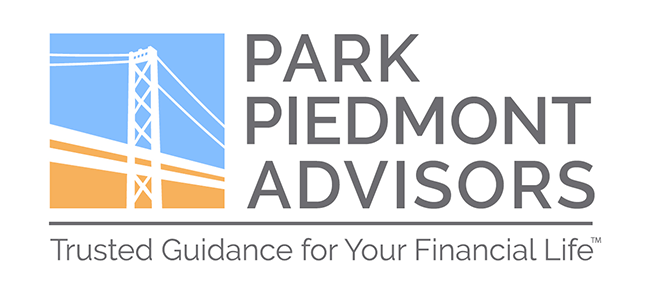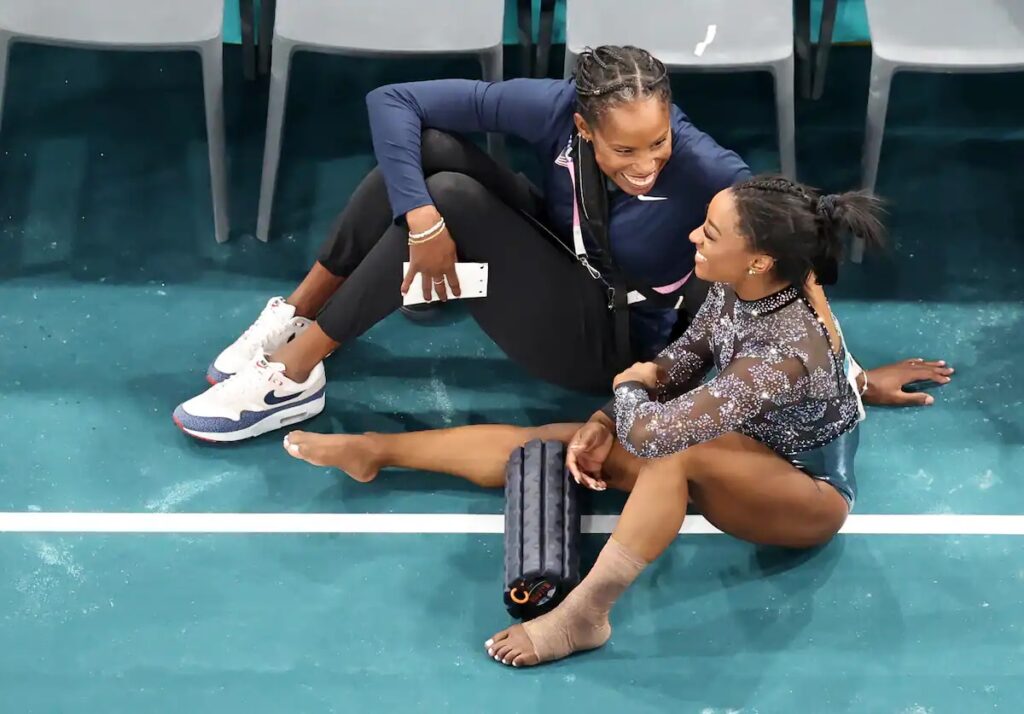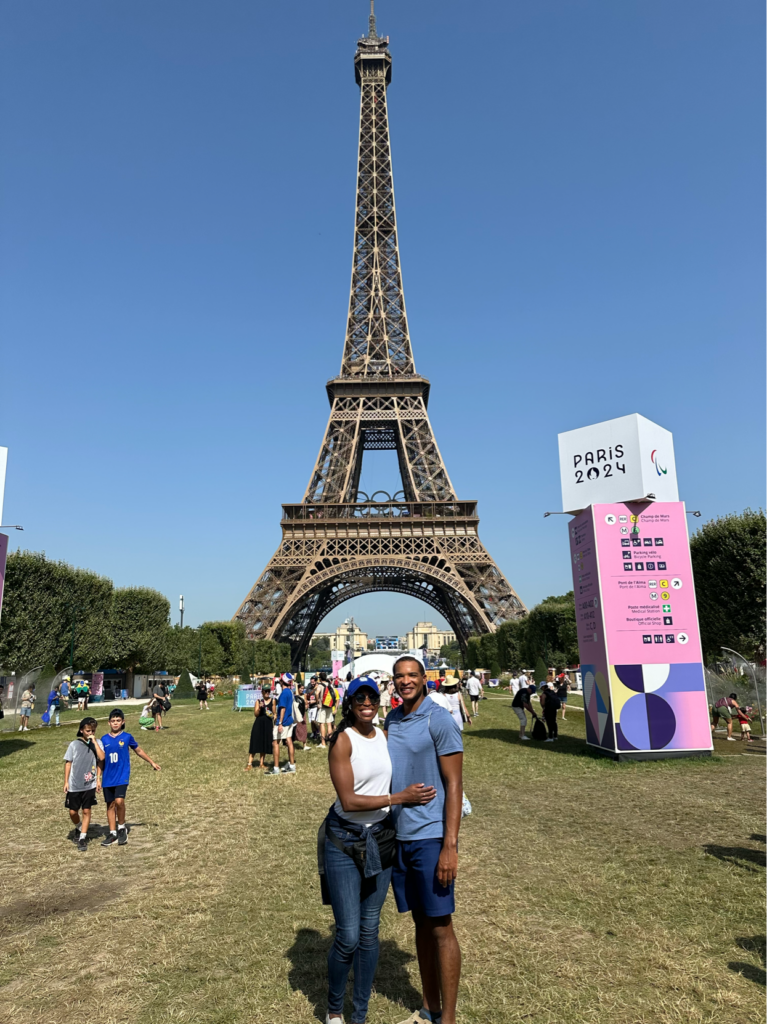Park Piedmont clients Dr. Marcia Faustin and Dr. Toussaint Mears-Clarke have had a big year.
Dr. Marcia Faustin spent much of July and August in Paris as the co-head team physician for the gold medal-winning U.S. Women’s Gymnastics team. Dr. Faustin, an assistant professor and Family Medicine and Sports Medicine physician at the UC Davis Health Medicine Sports Clinic, was an instrumental part of the medical team providing care to Simone Biles, Suni Lee, and the other Team USA gymnasts.
Marcia – or “Dr. Marcy,” as she’s known to the athletes – and her co-head physician, Dr. Ellen Casey, have shared the role of USA Gymnastics Team doctor since 2019.
As Candace Buckner from the Washington Post observes, “Together, they’ve worked to rehabilitate the reputation of their field by building trust with the athletes, their families and coaches. It has taken patience, knowing they would have to work on restoring confidence with a community that had utterly lost faith in the medical profession.”
Dr. Toussaint Mears-Clarke is a faculty physician and the Obstetrics Fellowship Director at Dignity Health Methodist Hospital of Sacramento Family Medicine Residency. He recently earned the California Academy of Family Physicians (CAFP) 2024 Educator of the Year award, which recognizes excellence in the field of family medicine education.
Passionate about providing care for underserved and marginalized communities, Toussaint has completed training to better meet the needs of the LGBTQ+ community. Earlier this year, he was elected to lead the LGBTQ+ constituency for the American Academy of Family Physicians (AAFP), which represents over 130,000 family physicians, residents, and students.
We’re grateful to Marcia Faustin and Toussaint Mears-Clarke for carving time out of their busy schedules to talk with us a bit about life with money.
What is your earliest money-related memory?
Marcia: I have three older sisters, and my parents both immigrated from Haiti, and they would take all of us to our local bank, which had a program where if you deposited money, then you got points, and you got to use the points to get a toy, or a stuffed animal. I must have been six or seven – very early.
Toussaint: I’ve always been a collector. And as a kid, I used to collect shells, plants, Pokémon, and rocks. And so when I realized that I could also collect dollar bills, I was immediately excited by the fact that I could collect something that had a purpose – that I could exchange for other goods and services.
Is there a purchase you’ve made that felt especially weighty – or filled with possibility?
Marcia: Together? Buying a home.
Toussaint: Yeah, that’s what I think – the home. And the reason is, when I buy a coffee at Starbucks, all I do is tap to pay. That’s it! And then I own that property! But when we bought a house, I’ve never signed so many documents in my whole life.
Is there a decision you’ve made, or step you’ve taken, that has made your life with money less stressful?
Marcia: I think we both have a similar philosophy of saving. Neither of us are spenders, so we haven’t had a difference in opinion on spending. It’s more like we need to convince the other person to make the purchase. Outside of that, just working hard to be successful within our careers and to make enough money that we don’t have to constantly worry about it.
Toussaint: The only other thing I would add is there’s so much in finance that doesn’t make sense unless you intentionally seek out the knowledge. In elementary school, or high school, or even graduate education – there was no real discussion about what financial products are out there, or about what it takes to achieve financial independence.
And so Marcia and I have been diligent in asking questions of others who have more of an understanding of what it means to be fiscally responsible. And that comes in many different flavors. Obviously, one is through Park Piedmont, but also our parents are very much a huge foundation in terms of what it means to save. And there are several websites – NerdWallet, White Coat Investor – that are fantastic, and the book Finance for Dummies is phenomenal.
You mentioned your parents – how have your parents shaped your life with money?
Marcia: My parents saved – they were always saving. They’re also very generous with money. They often were giving money to people who needed help, or to family or such. And my dad used to always say, “If you’re going to let somebody borrow money, you can’t have the expectation that you’re going to get it back.” But they were constant savers, so that’s how I’ve learned that.
Toussaint: My parents both grew up on farms in low-income settings. Where we grew up in Jamaica, poverty was ubiquitous. And so there’s almost an innate need to survive in that setting, and saving is a part of survival. I always remember my parents saying, “Work because you want to, because you love it, but not because you need to. The right to choose your own direction and destiny comes with having a strong financial foundation.”
What is one thing you purchased that has some meaning, or that brought you joy?
Marcia: Friends I’ve had since sixth grade just spent a weekend together. There was a crew of six of us, and one girlfriend lives in North Carolina, so we went there together. So I’d say purchasing to do that weekend.
Toussaint: Mine was a gift from Marcia. During the pandemic, I started playing trumpet. I had always been interested in music, and Marcia, for my birthday, gave me my own professional trumpet. That’s probably one of my favorite things: to be able to create melodies for and with others – to be in harmony, at peace, with the sound.
Maybe you just inadvertently answered my next question: what’s the best gift you’ve ever received?
Toussaint: My answer is actually my education. My parents helped pay for most of my education. My education was the best gift I’ve ever received.
Marcia: I think I would also say education. My parents helped with a lot of education and the activities that I did when I was younger that helped set me up to get a full scholarship for college. I think their overall investment in myself and my sisters, in our school and activities, and in learning about ourselves and what we enjoy – teaching us those lessons set us up for adulthood.
And it was a privilege that my parents could allow us to participate in those activities, and we very much recognize that, because there are so many people that just don’t have that access. Which is unfortunate, because we know how important it is. But we’re trying to make sure that we do what we can to also help those that are less fortunate.
What do you wish you could tell your 20-year-old self about life with money?
Toussaint: I’d probably tell myself not to worry quite as much about every single dollar spent versus every single dollar saved, and that it’s all going to work out.
Marcia: I think that I would also say that life is more than money – that there’s a lot more to value in life than money. Of course, it’s helpful to have, and it makes life much easier, but to not forget the other important things and to not focus so much on that.


